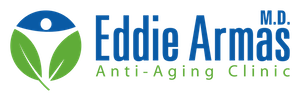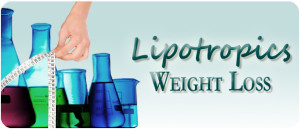Lipotropic compounds interact with fat metabolism by either hastening the removal or decreasing the amount of fat in the liver. Due to their fat metabolizing qualities, they’re used in a non-invasive type of weight loss treatment in the form of injections. The injections are used to dissolve fat in parts of the body that may appear to be less responsive to exercise, such as the stomach, inner thighs and buttocks. Be sure to keep in mind that this injection is supplemental to healthy weight loss habits. Exercise, a healthy and balanced diet, adequate rest and good habits are the best way to achieve weight loss.
The Vitamin B Complex Ingredients:
Vitamin B6, or pyridoxine, helps the body to absorb and metabolize amino acids, to use fats, and to form red blood cells. Deficiency in the vitamin may result in smooth tongue, skin disorders, dizziness, nausea, anemia, convulsions, and kidney stones. Whole grains, bread, liver, green beans, spinach, avocadoes, and bananas are rich food sources that are high in this vitamin. The RDA ranges from 1.3 to 2 mg depending on age and gender.
Vitamin B12, also known as Cobalamin or Cyanocobalamin, assists the function of the nervous system and the formation of red blood cells. If the body is unable to absorb sufficient B12, pernicious anemia can result. B12 can only be found in animal sources such as eggs, milk, fish, meat, and liver. Therefore, vegetarians are strongly encouraged to supplement. The RDA for adult males and females is 2.4 μg.
Choline, is a fat emulsifier which aids in emulsifying cholesterol so that does not settle on the arterial walls. The body can produce choline with the help of B12, folic acid and methionine. Without choline fat can become trapped in the liver, where it can block normal metabolic functions and can lead to weight gain
Vitamin B1, known as thiamine, serves as a catalyst in carbohydrate metabolism and helps synthesize nerve-‐regulating substances. Deficiency can cause heart swelling, leg cramps, and muscular weakness. Rich food sources high in thiamine include liver, heart, and kidney meats, eggs, leafy green vegetables, nuts, legumes, berries, wheat germs, and enriched cereals. The Recommended Dietary Allowance (RDA) is 1.5 mg. Some believe thiamine helps protect against alcoholism and that it is good for depression, stress, and anxiety. It is also said to improve mental ability and to help indigestion.
Inositol: metabolizes fats and cholesterol and aids in transportation of fat in the blood system. It also aids in the redistribution of body fat and can help to lower cholesterol levels.
L-Carnitine is a substance that helps the body turn fat into energy. Your body makes it in the liver and kidneys and stores it in the skeletal muscles, heart, brain, and sperm.
Usually, your body can make all the carnitine it needs. Some people, however, may not have enough carnitine because their bodies cannot make enough or can’ t transport it into tissues so it can be used. Some other conditions, such as angina or intermittent claudication, can also cause low levels of carnitine in the body, as can some medications.
Carnitine has been proposed as a treatment for many conditions because it acts as an antioxidant. Antioxidants fight harmful particles in the body known as free radicals, which damage cells and tamper with DNA. Antioxidants can neutralize free radicals and may reduce or help prevent some of the damage they cause.

